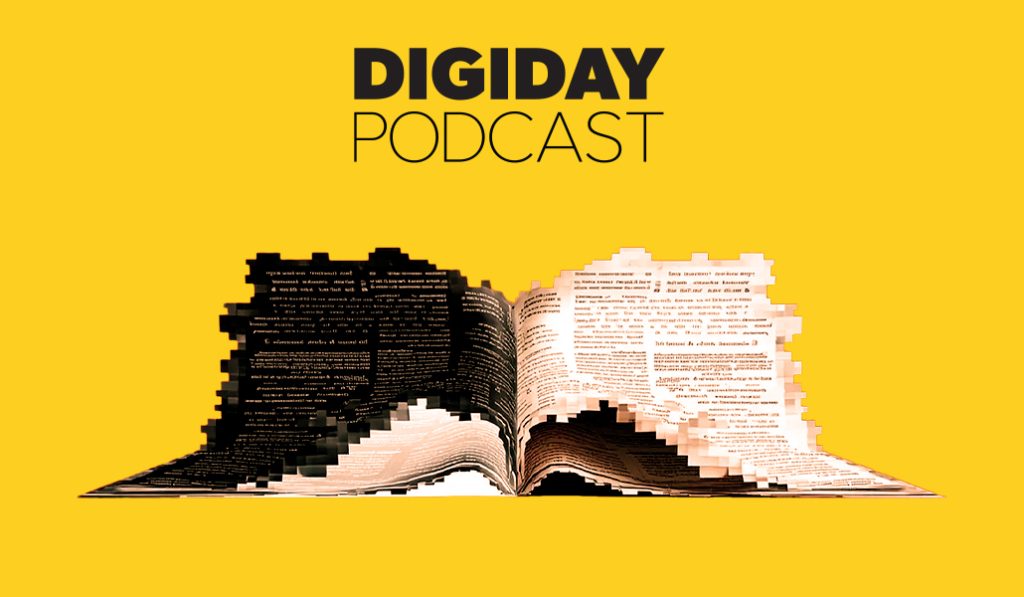With the rise of AI, more people are starting their online search via AI-powered chatbots like Perplexity, OpenAI’s ChatGPT and of course, Google’s Gemini. That shift in online search has started eating into publisher referral traffic, and sparking pushback with lawsuits here in the U.S. and an investigation into Google’s market dominance over in the U.K.
All said, publishers are losing ground in search and strategizing to find their footing in a changing digital landscape.
“Violatile referral traffic, it’s become the norm, hasn’t it, for publishers,” said Jessica Davies, Digiday’s senior media editor, on a recent episode of the Digiday Podcast. “But the AI stuff definitely adds a new layer onto that.”
In this episode of the Digiday Podcast, Davies and senior media reporter Sara Guaglione join hosts Kimeko McCoy and Tim Peterson to break down the numbers behind the traffic drop and how publishers are responding.
Also on this episode: Google’s search antitrust remedies leave ad industry execs angry and disappointed, Apple plans its own AI-powered search engine and U.K publishers call for Gemini to be included in its investigation of Google’s search business.
This interview has been lightly edited for clarity.
Clicks are down, pressure is up and everything is murky
Guaglione: It’s a widespread problem that’s being caused by AI overviews. The degree to which they’re really existential [threats] or not, really depends on the publisher, what keywords they were targeting, how much evergreen content was part of their editorial strategy.
Davies: In Europe, a lot of publishers are reporting higher and higher click-through drops and general referral drops. But it’s really tricky still to get that clarity and transparency on the data and measurement. In May, Mail Online spoke at a conference in Poland here saying how they were seeing 50%-plus drops. But as Sara says, it really does depend on the publisher. There’s just still a real gap in terms of what they can actually see and what they can tie it to that can help them inform strategy around what they need to do with SEO — whether they need to push harder on how they’re being compensated. Because they don’t really have a lot of, or as much insight as they’d like, into how it’s being used.
Ripple effects
McCoy: On my side of the house — for marketers, right? — they’re thinking about this in terms of their own brand product pages and whatnot. I’ve heard the word authority more times than I can shake a stick at. The idea is: We need to be seen as an authority across all of our pages — blogs, social, everything — so that when these AI bots crawl the web, there’s some kind of consistency, and we show up. But what I found interesting is that there’s now more strategy being put into things like blogs, influencers, and so on — all in an effort to capture a bigger share of what AI might crawl. So the question becomes: what does that look like on the publisher side of the house? Whether that’s Reddit, blogs themselves, or similar platforms — how are publishers trying to capture some of that referral traffic in a different way?
Guaglione: Publishers are doing that too. They’re increasingly creating networks of creators that they’re tapping into and working with to produce content that isn’t reliant on more traditional search channels. They’re looking to places like Reddit for both community engagement and referral traffic — finding the right subreddits where people are genuinely interested in the kind of content they produce. And Reddit has actually become a growing referral source for some publishers.
Who gets a seat at the table?
Peterson: Although it makes me wonder if what we’re seeing across all of this — between which AI companies are in the room for these IAB Tech Lab meetings, or feel it’s necessary to meet with publishers through the IAB, as opposed to doing individual deals with big publishers — and the impacts of things like AI Overviews and AI Mode… is whether what we’re witnessing is a culling of publishers. One thing in the Digital Content Next study that Jess reported on is how there was a 7% drop in referral traffic for news brands, and a 14% drop for non-news brands. That feels indicative — news has more utility, there’s more inherent value in that information.
Davies: That’s a solid point. A lot of these food publishers—big magazine publishers—they are innovating a lot with their own LLMS and doing actually some quite interesting stuff in terms of how they resurface their own [content].

